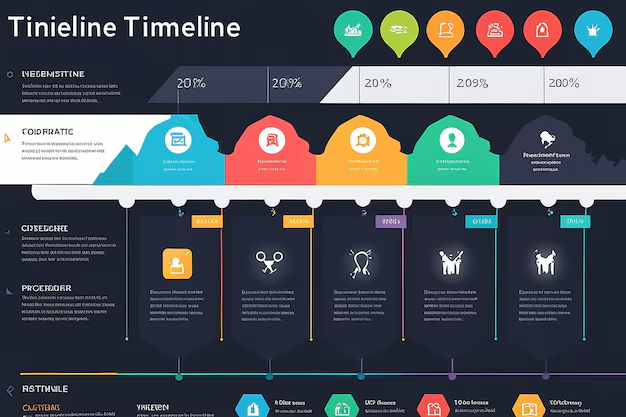How to Know When You Can Apply for LIHEAP: A Complete Guide
As the weather changes and temperatures drop, many households start to feel the pinch as heating bills rise. For those struggling to pay these costs, the Low Income Home Energy Assistance Program (LIHEAP) can be a lifeline. But understanding when and how to apply for LIHEAP can seem daunting. This guide will walk you through the essentials so you can be prepared when it's time to apply.
What is LIHEAP?
LIHEAP is a federally funded program that assists low-income households with their energy bills, ensuring they can stay warm in the winter and cool in the summer. The program helps to cover the costs of home energy bills, energy crises, weatherization, and energy-related minor home repairs.
Key Aspects of LIHEAP
- Energy Assistance: Provides help with paying heating or cooling bills.
- Crisis Assistance: Offers immediate help for energy-related emergencies.
- Weatherization Assistance: Funds improvements to make homes more energy-efficient.
- Eligibility: Based on income level, household size, and energy costs.
When is the Application Period for LIHEAP?
The application period for LIHEAP varies by state, as each state sets its own application timelines, sometimes even by region within the state. However, there are some common patterns to be aware of:
General Time Frames
- Winter Assistance: Most states begin accepting applications in late fall, around November, and the period can last into spring, typically until March or April.
- Summer Cooling Assistance: In states with extreme heat, applications may open in the late spring or early summer.
How to Find Your State's LIHEAP Application Dates
- State Websites: Check your state’s official government website for exact dates and instructions.
- Local Agencies: Many counties or local welfare agencies have resources and can provide detailed application timelines.
- Community Outreach: Keep an eye out for local announcements or community meetings that may provide vital information.
Who is Eligible for LIHEAP?
To ensure that aid reaches those who need it the most, LIHEAP has specific eligibility criteria based on:
- Income: Typically, households must have income at or below 150% of the federal poverty level or 60% of the state median income.
- Household Size: Larger households may have higher income limits.
- Energy Costs: Preference is often given to those with higher energy costs relative to income.
Factors Impacting Eligibility
- Vulnerable Populations: Elderly, disabled, and households with young children may receive priority.
- Energy Crisis Situations: Those who face imminent disconnection or have low fuel may also be prioritized.
How to Apply for LIHEAP
Though each state may have different procedures, the general steps for applying to LIHEAP typically include:
- Gather Necessary Documents
- Proof of income
- Recent energy bills
- Identification and proof of residence
- Submit Application: Complete and submit an application online, by mail, or in some cases, in person.
- Follow Up: Check application status if necessary and respond to any requests for additional information.
Tips for a Successful Application
- Apply Early: Funds are often limited, so it's crucial to apply as soon as the application period opens.
- Stay Informed: Regularly check for updates to application statuses and requirements online or by contacting local agencies.
- Seek Help if Needed: If you're unsure about the application process, reach out to local community organizations that assist with LIHEAP applications.
Common Questions About LIHEAP
Can I apply for LIHEAP if I rent?
Yes, renters can apply for LIHEAP as long as they meet the eligibility requirements.
Does LIHEAP cover all energy costs?
LIHEAP typically does not cover 100% of energy costs but provides assistance to reduce the financial burden.
Can I apply for LIHEAP more than once a year?
This depends on state rules. Some states allow multiple applications in a single fiscal year for different types of assistance (winter heating, crisis, or cooling).
Visual Guide: Key Steps to Applying for LIHEAP
Here’s a handy summary illustration to make your application process simpler 🌟:
- 📅 Check Application Dates: Annually track your state’s application schedule.
- 📋 Gather Documents: Income details, energy bills, residency proof.
- 🖥️ Submit Application: Online, by mail, or in-person.
- 🔍 Monitor Application: Regularly follow up on your application's status.
Important Takeaways
- Start Early: Keep a close eye on the dates when your state opens applications.
- Stay Organized: Have all required documents ready before applying.
- Reach Out: Don’t hesitate to ask for help if you experience difficulty during application.
Effective planning and awareness of LIHEAP’s schedules and processes can ease the application process and help ensure you receive the assistance you need. By following this guide, you can navigate the application process with confidence and secure much-needed support for managing your home energy costs.
Understanding when you can apply for LIHEAP is the first step toward accessing a program that can make a significant difference in your energy expenses, ensuring comfort and safety for you and your family through all seasons.

Related Topics
- Can I Apply For Liheap Online
- Can You Apply For Liheap Online
- Does Liheap Help With Electric Bills
- Does Liheap Pay Every Month
- How Can I Check The Status Of My Liheap Application
- How Do I Apply For Liheap
- How Do I Apply For Liheap In Pa
- How Do I Apply For Liheap Online
- How Do I Check My Liheap Status
- How Do I Check My Liheap Status In Oklahoma
